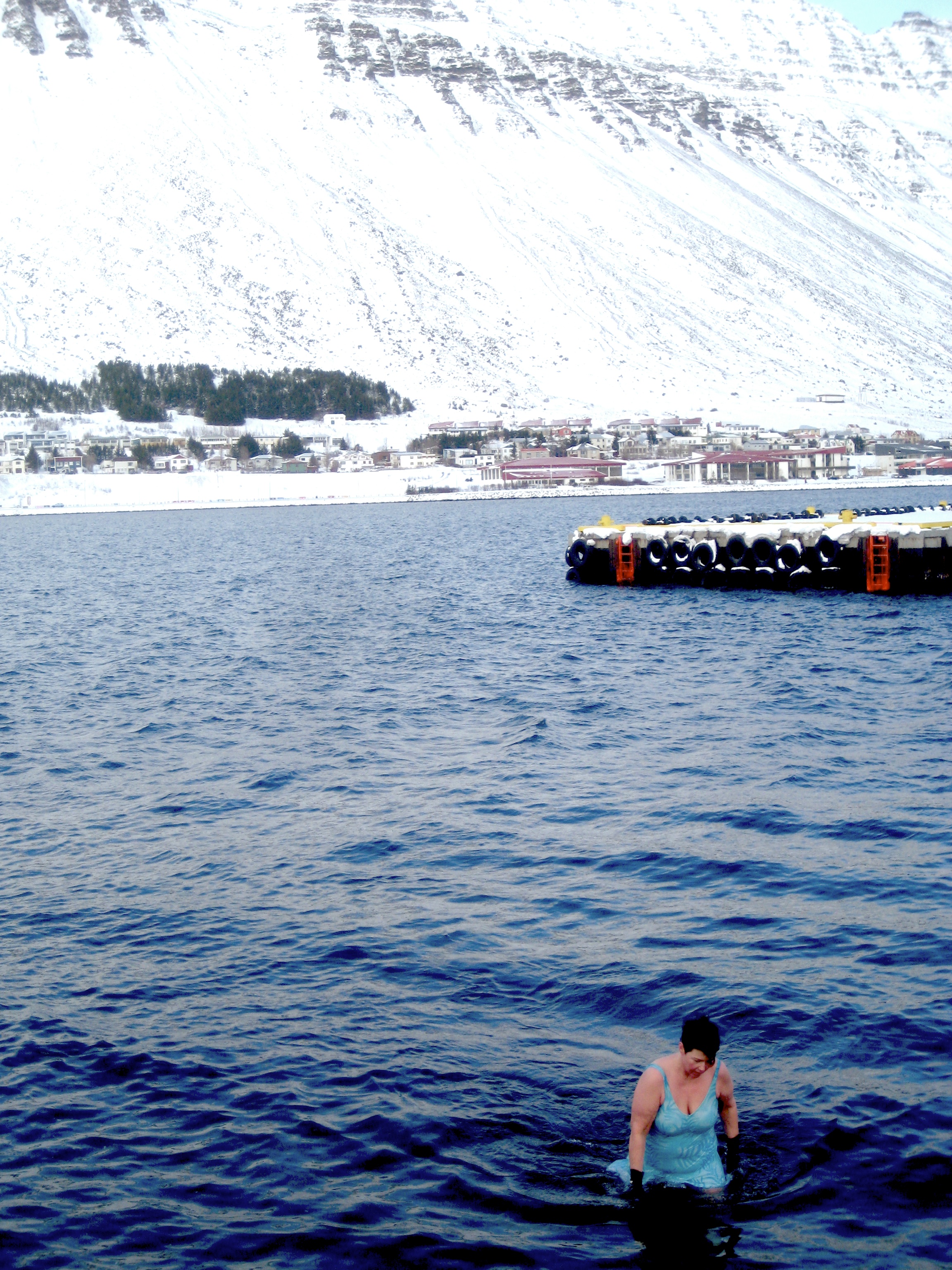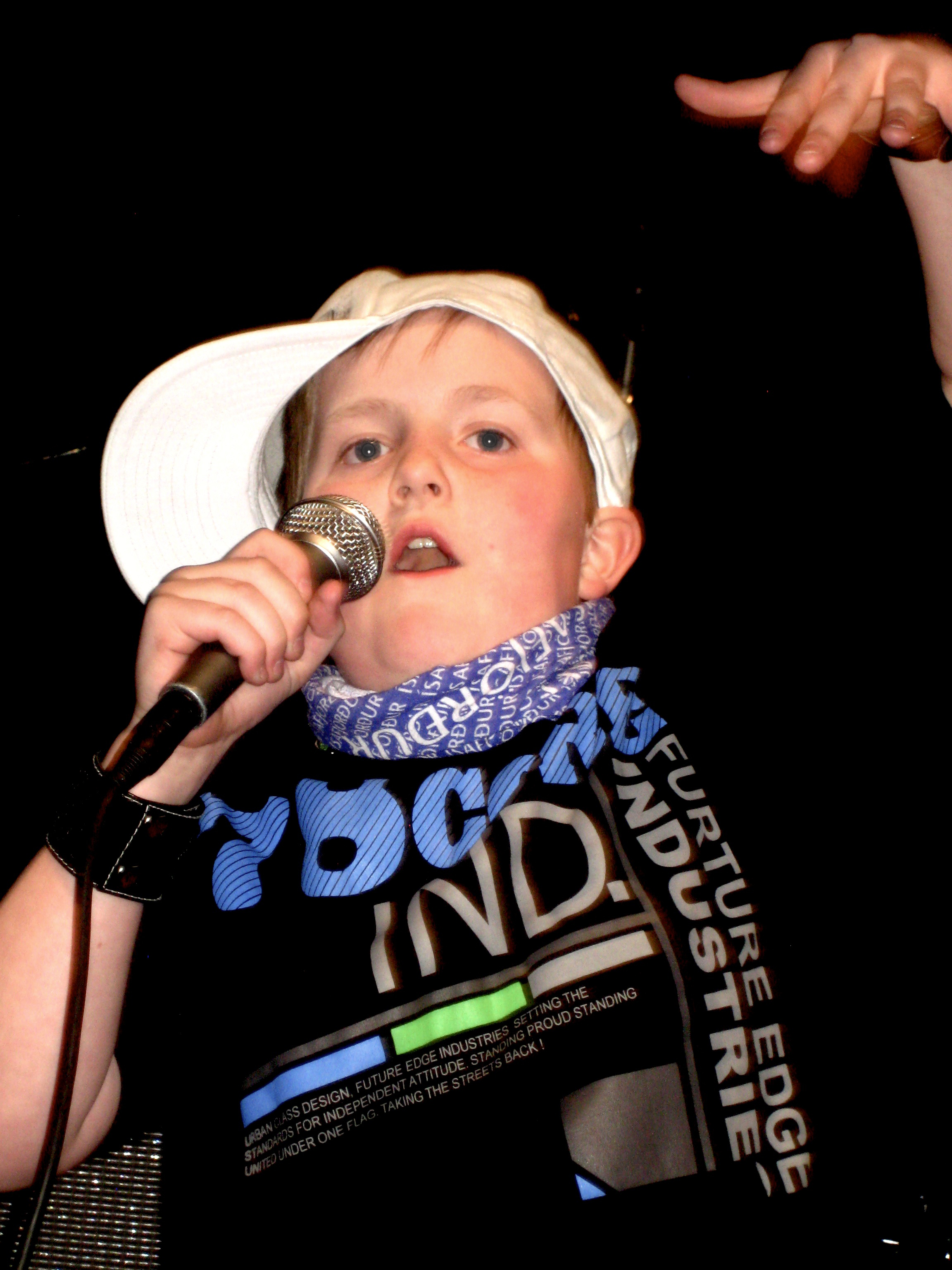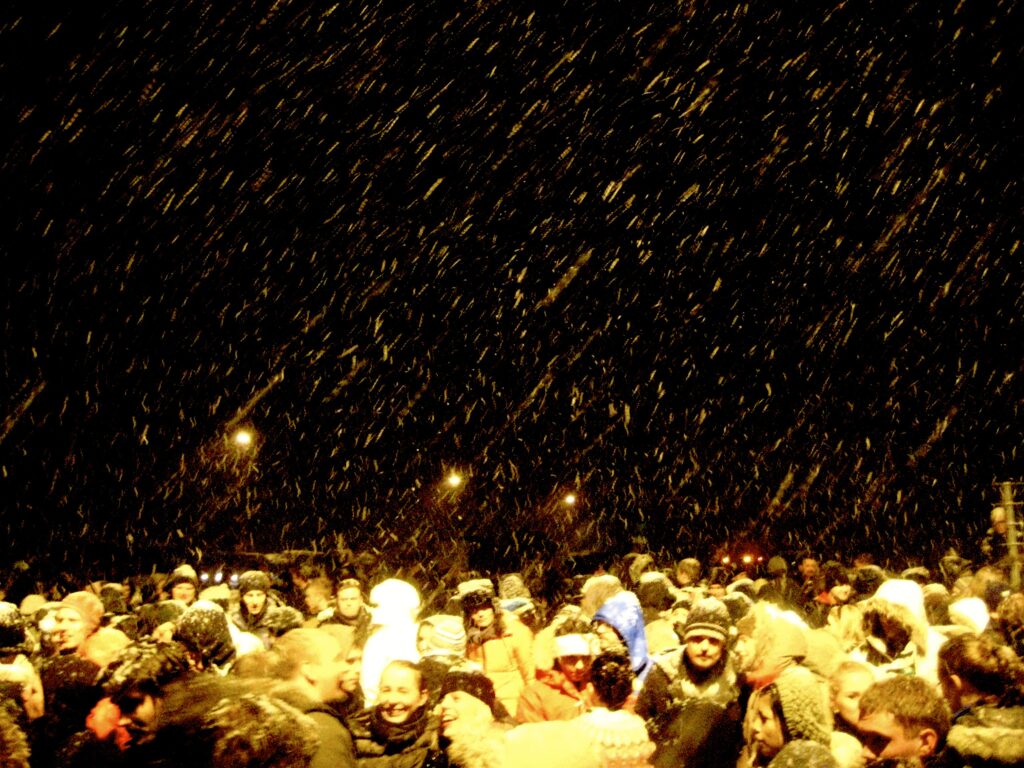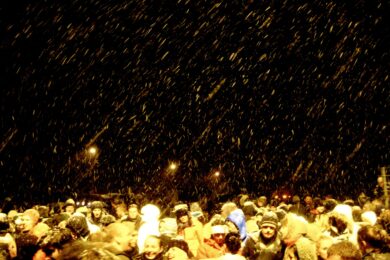Part Two: I’ve seen it all
Outside the Hotel Ísafjörður the next morning, the journalist from London and the journalist from Cologne are puffing on cigarettes. The journalist from London seems to be shaking.
"I lost my coat last night," he says with hangdog eyes. I decide I rather like him, and despite his condition he still looks better than the journalist from Cologne whose own eyes, suitably, resemble pissholes in the snow.
"Good party?" I ask.
They groan and nod their heads.
We leave them behind and take a short hike to the harbour. The sun is out, the sky is blue, there’s not a cloud to spoil the view, and we’ve got an appointment with two ‘Pink Ladies’. Every Saturday, we’ve learned, a small group of women gather at the boathouse to revive their circulations. It’s a smaller group than we expected: there are only two of them, arguably a little younger at heart than perhaps they are in body.
"Often there are three of us, sometimes even four," they claim, but today they’re on their own. Despite my fur-coated exterior I shiver for them as they emerge from the boathouse in their bathing suits. (Bikinis, after all, would be stupid.) I notice they’re also wearing gloves. After fortifying themselves with slugs of Brennivin and, bizarrely, a lump of hákarl, they wade out and duck down beneath the still waters. Their heads emerge a moment later, howling at the sun, and they strike out towards a buoy that trembles with cold in the fjords. They reach the end of the jetty, and we hear their voices in the distance before they turn round to head back for the snow-chromed beach. The sunlight picks out the colours around us: the red roofs of the warehouses the other side of the water, the bright yellow cleats lining the docks, the women’s skin as they reach shore. It’s no wonder they call themselves the Pink Ladies.
"How cold is it?" the documentary crew ask them.
"Zero degrees," they respond nonchalantly as they dry their hair.
"How much warmer does it get in the summer?"
"About six degrees," they smile.
"Can you feel the difference over the course of the year?"
"Most of the time," they laugh, "you can’t feel anything at all."

One of the ‘Pink Ladies’ emerges from her Saturday morning dip
In Reykjavik that first night I was introduced to local post-rockers For A Minor Reflection. I joked about the number of bands with which every Icelandic musician plays.
"It’s always fun to see shows in Iceland," one of them observed. "Even if you don’t like the band, they’re probably still your friends."
That seems to lie very much at the heart of Aldrei’s charm. Everyone seems to know everyone, whether it’s the bands, which are more than happy to share equipment and musicians, or the audience, most of whom come from the area, and if they don’t, still seem to be related to someone from the region. In fact, as my girlfriend and I wander through the throng gathering outside the hangar soon after the music has restarted on Saturday afternoon, she points out that a group of people with whom we shared a hot tub earlier that afternoon in Bolguravik are now standing mere feet away. They wave at us in acknowledgement. Everyone seems so cheerful that it’s hard to go anywhere without being accosted by strangers. Even the security responsible for the bar area are helpful: the licensing laws apparently, and rather curiously, state that drinks bought there also need to be consumed there, but the bouncers quietly advise us that as long as we don’t let them see us emerge with our drinks then no one will accuse us of breaking any rules. Many people, however, have brought their own booze and are swigging from receptacles that are unlikely to contain what the labels claim they do, while others grip bottles of wine.
Once again the lip of the stage is lined with young children, and to the left Mugison cradles a kid in his arms. It turns out we’ve just missed a band made up of ten year olds whose drummer, we’re told, could have given Keith Moon a run for his money. This news highlights another aspect of Iceland’s, and indeed Scandinavia’s, musical ethos: music seems engrained in its citizens from an early age. Ísafjörður itself boasts a successful music school, and, unlike the youth of countries like Britain, no one seems threatened by the fact they might be considered geekish for singing in a choir or performing traditional folk. Music provides a vital source of bonding within these communities, and Aldrei’s philosophy is merely an extension of that.
Quite how this musical training has affected MC Isaksen, however, remains a mystery. We first spot him side of stage, arms crossed, spotless white baseball cap askew, the local football team’s scarf wrapped around his neck. Still too young to drink by almost a decade, he bounds on stage, pink faced, and bumps fists with a member of Stjörnuryk to deafening, highpitched screams. When it comes to shrill volume, the teenagers who welcomed Veðurguðirnir have nothing on the local pre-teens, at least some of whom, one suspects, share classes with this little tearaway. But his popularity is far from restricted: as his mentor fires up the backing track for his first tune – amusingly, he’s running it off iTunes – the assembled crowd goes, quite simply, nuts. Our little rascal looks overwhelmed by the response, the kind of cute grin on his face that could justify a multimillion dollar Disney budget. Members of the more senior citizens of the community pump the air with arms extended, and MC Isaksen himself chops, waves, and grabs his crotch like he’s grown up on the brutal streets of the Bronx instead of the icy streets of Ísafjörður. He wheels out a crowd favourite and the entire room lights up with smiles: who can deny the pleasure of hearing a ten year old rap about saving up pocket money to buy himself a bike?
"When I grow up," I tell my girlfriend, "I want to be like him."

MC Isaksen keeps it real
As I smoke another cigarette in front of the hangar while my girlfriend collects more clothes from the car, I’m approached by what appears to be a fisherman, his handknit sweater and what might be a warm sock pulled over his head initially distracting me from the microphone he’s waving in his hand. He’s overheard me speaking in English and asks me where I’m from. When I reveal that I’m an Englishman from Berlin, he asks if I’d mind doing an interview. From out of nowhere a cameraman swoops into view, and before I know it I’m rambling enthusiastically about my experiences.
"It’s the most fabulous atmosphere. It’s really great," I rant. "I love the fact that all these kids are lined up at the front of the stage and you’ve got people playing Flying V guitars and incredibly loud metal. Although I quite enjoyed the kid who was sat there with his fingers in his ear."
"This is maybe an unusual music hall?" Rip Van Winkle, the fishing presenter, stammers.
"Yeah, definitely," I continue. "I mean, the whole thing is very unusual. The whole way that Mugison has put it together is very unusual. The fact that you can have, you know, the more famous bands playing early and there’s no kind of pecking order, there’s no sort of egos involved: it’s the way festivals should be, I think. It’s without snobbery, and it reminds you why you loved music in the first place rather than because it’s fashionable or hip. So yeah, it’s about just enjoying music, and that I love."
My zeal is genuine. Over the course of the last few hours I’ve enjoyed the obviously Balkan influenced Balkansveit Halldóns Smára, the Rage Against The Machine hip hop of Stjörnuryk, a group clearly committed to mimicking US street culture but pulling it off in their own language with conviction, and the polka-meets-ska of Geirfuglarnir, a kind of Icelandic Pogues fronted by a man eager to mistake running on the spot for dancing and equally keen to pull off his shirt. Biggi Bix, meaanwhile, has proved that the mid ’90s Britpop phenomenon still holds sway over certain parts of the globe while featuring a bassist who may actually be Macaulay Culkin. Then there’s Iceland’s own Aphex Twin, Biogen, who’s inspired frantic dancing throughout the hall as well as balloon fights between the kids, and Lay Low, whose acoustic blues have provoked unexpected singalongs, simultaneously raising hairs on the back of the neck thanks to Lovísa Elísabet Sigrúnardóttir’s creaking Karen Dalton vocals.
As the TV presenter turns away, my girlfriend comments that the last couple of minutes are about the first she’s seen me free of ‘fur groupies’. It’s not so great an exaggeration, but I soon pay for this brief burst of freedom: people start to approach me, reporting that they’ve just seen me on TV. It turns out I was interviewed for Iceland’s Saturday evening national news bulletin. I’d be lying if I said the attention was unwelcome: it’s hard to be annoyed by an endless parade of beautiful men and women, though I’ve no idea how they’ve managed to see the show given that they’re attending a festival in an old warehouse. But the coat, too, continues to attract attention, and I’m increasingly waylaid. A group of middle-aged women wave me down as we head back into the venue.
"You know it’s illegal to bring such a fur into Iceland?" one of them trills. "You have to pay taxes on it."
For a moment I think she’s serious, and wonder whether perhaps karma is about to wreak revenge on me for wearing such savagely sourced goatskin. They revel briefly in my discomfort.
"Alternatively you can just give it to me," she laughs.
"Absolutely not," I assert. "I’ll freeze to death without it!"
"It looks dirty," her friend winks. "I think you should give it to me. I’ll only take it to wash it."
I’m no fool. I shake my head vigorously.
"Well, will you let us stroke it?" the third one asks.
"Oh, go on then," I grin. They lean forward, like witches around a cauldron, and paw me all over. My girlfriend steps in.
"I think it’s time I had exclusive stroking rights," she announces, but before things can get nasty we’re distracted as the women suddenly point excitedly at the stage.
"Do you know who that is?" one of the ladies gasps.
"Sure I do," I reply casually, like I’m well advised in all things Icelandic. "It’s Papamug, Mugison’s dad. And that guy next to him showed us around the museum yesterday."
They shake their heads.
"No, not them," they reply impatiently, gesturing towards a suave gentleman who’s just appeared on stage and who made an earlier appearance with a rather slick cabaret singer called Sigríður Thorlacius. He looks like the star of a glossy 1980s German soap opera, and I’d wondered who he was, especially since he seemed to lack familiarity with a tune.
"That’s Einar Kárason," they tell me excitedly. “He’s a very famous writer.”
"Wow," I say, and though I don’t know anything about him, I accept their enthusiasm graciously. It’s soon eclipsed, however, by the arrival of a rather more eccentric figure, someone who couldn’t look more Icelandic if he tried. Dressed, like almost every man on site, in yet another knitted sweater, he also sports an extravagant fur hat that completely overshadows my coat and, frankly, makes me rather jealous. Beneath it, silver frosted stubble suggests he’s just emerged from a long walk in the fjords.
"That’s Friðrik Þór Friðriksson," they squeal.
"Wow," I say, feigning intelligence once again, as I try not to get sidetracked by the fact that the band has now been joined by a middle-aged woman attempting the splits.
This time I should know better. A camera-wielding gentleman from the local newspaper Bæjarins Besta explains excitedly that Friðrik Þór Friðriksson is the Oscar nominated director of Children of Nature, the founder of The Icelandic Film Corporation, and a man with ties to the likes of Lars Von Trier and Francis Ford Coppola. His presence on the stage is clearly quite a coup, especially in the wake of Kárason’s arrival, since they both collaborated on the popular award-winning film, Djöflaeyjan (Devil’s Island). The photographer goes on to express pride in the fact that so many of the musicians on stage are former students of the local music school, and then he tells me about his newspaper.
"It’s the oldest in Iceland," he states boldly.
"How old is that?" I ask.
"Twenty five years old," he says.
This doesn’t seem old at all, especially amid these ancient landscapes. I try not to laugh, but he sees I’m amused and clarifies that Iceland’s other papers have all, as far as I can understand, changed hands or publishers more recently.
"I own it," he adds proudly. "I also have eleven boats."
He must be a fairly successful publisher, I decide.
"Ten of them," he admits, "are kayaks."
The hangar is by now so crowded that it’s becoming uncomfortable, and the reappearance of one of the hot tubbers with whom we’d earlier been reunited doesn’t encourage us to stick around. His eyes Bez-like, he’s clearly more than a little excited and has stripped down to the waist. His chest is covered in a fine layer of body hair, obviously carefully trimmed, and since he’s trying to stroke my coat I in turn playfully stroke his chest. This is a mistake, not because he thumps me to the ground, as one might perhaps expect, but because he’s slick with sweat. This isn’t, however, as bad an idea as my girlfriend’s: she suggests we pose together since my coat and his natural fur make such an entertaining match. We participate in a little male bonding for the camera, while I simultaneously survey the crowd that jostles us like we’re two leafy trees in a storm. As my girlfriend’s camera flashes, she suddenly looks alarmed. He too has flashed: the gentleman – if one can call him such a thing – has dropped his trousers and underpants. We make a hurried exit, though not before my girlfriend’s made a second attempt at a picture.
Outside, a blizzard lashes the partygoers, snow dumped from the heavens with such conviction that bare heads resemble feathered nests. We’ve made it through about eighteen bands – to be honest I’ve lost count – and, combined with the cold, the bitter, bitter cold, overkill is kicking in. Despite all the music, however, there’s still room for more tunes in my head: a line from an old Cowboy Junkies song keeps ringing in my ears.
"It’s the kind of night you spit and it freezes before it hits the ground."
Another keeps bumping into it, from Loudon Wainwright III’s ‘You Don’t Want To Know’.
"It was colder than a witch’s tit, colder than a polar bear’s nose…"
I can’t feel too sorry for myself, however: I’m still wrapped in my flagitious fleece, whereas there’s a man directing traffic in the car park in little more than a fluorescent yellow jacket to keep him warm. That job must be even worse than digging up rotten shark flesh.
I spot the journalist from London through the snow squall, and he eagerly waves us over.
"You were right," he calls as we approach. "Look!"
He tugs at the lapels of his coat.
"They still had it in the bar where I left it last night," he beams, then points at the rucksack he’d lost during the first night’s show and which is now hanging from his shoulder. "I got this back as well. They took the rum and coke, but frankly," he shrugs, "I can hardly blame them for that!"
"Told you it would be fine," I nod, but in truth it is rather remarkable. Wherever we look, Icelanders of all ages are swaying or staggering, the younger ones due to ground that has been trampled to sheet ice, older ones perhaps indebted to more traditional alcoholic means. And yet, despite this chaos, and despite the fact that it’s almost impossible to get back into the venue, crammed as it is like a can of Icelandic sardines, there doesn’t seem to be any trouble at all. The moshpit may extend from the front all the way to the back where they’re ladling out soup and fish stew, but the sense that people are looking out for one another is irrefutable. When a couple take a nasty tumble in the midst of the crowd, they’re swiftly scooped up back to their feet, and though the blonde involved seems shell-shocked for a while, it could have been much, much worse. All the same, we decide not to brave the madness again. There are only two bands left – we think – and I’m convinced I can use the time more profitably by queuing for a final beer. So we squeeze our way into the bar once again, and as my coat begins to steam I realise I’ve become something of a celebrity: the kind of fur that would attract the attention of animal loving PETA members in most European cities here continues to bring me nothing but praise. Instead of throwing red wine at me, strangers are simply throwing compliments.
"Did you kill the bear yourself?" a gangly young man squeezed up against me asks. I look at him in astonishment.
"Excuse me?"
He points at the coat.
"Did you kill the bear yourself?"
"Actually," I blush, "it’s way, way worse than that."
"You should tell people you killed the bear," he insists.
"Actually," I say, after thinking this over a moment, "it’s way, way better than that. This is the skin of twenty goats."
He laughs. But then I feel guilty. Very, very guilty. I know I may never wear this coat again – even if I wanted to, I’ll probably never go anywhere I could get away with it, arguably with good reason – but I’ve enjoyed the company of my dead goats. My instincts tell me it’s wrong, and yet no one else here has. These red-faced, jubilant partiers, swaying and shouting, tottering on the ice and toasting one another, could – if it weren’t for the snow sheeting down outside the tent flaps, the birdlike chatter of the accents around me, the fur coats and woollen hats – be anywhere. But then again, perhaps not: at the other end of this makeshift bar a woman adjusts the fox skin around her neck. I can see its little legs hanging from her shoulders, its nose nuzzling a tiny splash of exposed skin. It’s a little like looking into a looking glass, except that, despite my own suddenly conscience-stricken features, she seems utterly nonchalant, as does the crowd that surrounds her. If anyone here is worried – about the overflowing warehouse, about the freezing conditions, about the little things that niggle and the bigger things that bother us – then they’re not showing it. Most likely these daily problems will manifest themselves again tomorrow, when the hangovers kick in and the threat of the end of the Easter holidays hangs heavy in the freezing air, but somehow that seems, right now, hard to believe. The sense of relief that permeates a city pub at the end of the week, the feeling that the routine of real life has finally been suspended for 48 hours, is absent. Sure, most people here are normally unlikely to be quite so relaxed as they feel at the end of this memorable weekend, but I’m sure – sentimental though it may sound – it’s not merely alcohol induced. Amidst this barren landscape, the simple beauties of life, of companionship, and of course music, seem more vivid than ever before. It’s like the world has shifted ever so slightly on its axis.
The snow outside our hotel window glows yellow beneath the streetlights. The sound of a TV mutters through the wall. My Astrakhan coat hangs in the dark on the back of a chair, like a ghost whose body I once inhabited. Tomorrow my girlfriend and I will drive six hours back to Reykjavik through mountains and fjords, past empty boarded up farmhouses and small villages containing a clutch of houses and maybe a church. Tomorrow the other journalists will hear that the airport is closed due to snow and they’ll rent a car that they’ll drive off the empty road in a short-lived but nevertheless terrifying moment of panic that brings home to them the fragility of their existence. Then we’ll gather together round a table at midnight in the capital’s Kaffibarinn and reminisce, full of a boisterous, wide-eyed, optimistic joy, about the experiences we’ve shared, the encounters we’ve enjoyed and the life-endangering trials we’ve endured, from asphalt as smooth as glass to sheep’s testicles rubbery as Wrigley’s. We’ll recall the music, in all its forms, arguing about the highlights, and then we’ll laugh like old friends at our cynicism. Tonight, however, we’ll sleep like babies.
"’The man who killed the bear’," my girlfriend whispers in my ear after we’ve turned off the light. "That’s what I’m going to call you: ‘The Man Who Killed The Bear’."
"I guess it’s better than ‘The Man Who Couldn’t Eat The Shark’," I murmur into the darkness.
Neither seems applicable. Yet somehow, here, they are.



